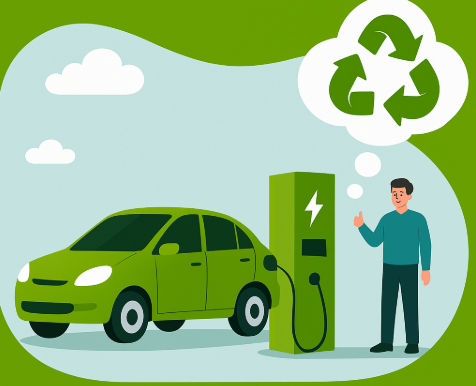Electric Cars have seen rapid growth in recent years, but one major hurdle has been limited driving range. Many users experience range anxiety—the fear that their EV may run out of charge far from a charging station. However, a new breakthrough in battery technology could significantly change this scenario.
Breakthrough by POSTECH Researchers
Scientists at Pohang University of Science and Technology (POSTECH) in South Korea have developed an advanced battery that could allow electric cars to run up to 965 km (around 1,000 km) on a single charge. Their innovation involves the use of micro-silicon particles and a gel-based electrolyte, enhancing the energy storage capacity of lithium-ion batteries.
Why Silicon Instead of Graphite?
Traditionally, lithium-ion battery anodes are made from graphite, which is stable but limited in how many lithium ions it can hold. Silicon, on the other hand, can store up to 10 times more lithium ions, potentially offering far greater battery capacity. However, silicon has a major drawback—it expands up to three times its size during charging, which can damage the battery.
Previously, nano-silicon was considered a solution, but its production is complex and costly.
The New Approach
The POSTECH team found a better solution: using micrometre-scale silicon particles combined with a special elastic gel electrolyte. This gel absorbs the stress from silicon expansion, preventing battery damage and maintaining strong conductivity. These micro-silicon particles are 1,000 times larger than nanometre ones, yet they still support a high charge capacity without significantly increasing production costs.
“We used a micro-silicon anode, yet we have a stable battery. This research brings us closer to a real high-energy-density lithium-ion battery system,”
– Prof. Soojin Park, Co-author, POSTECH.
Real-World Potential
While this development holds great promise, experts say it may take several years before the technology is ready for mass production. Once commercialized, EVs could achieve a driving range of over 620 miles (965 km) per charge, making them far more convenient and practical for long-distance travel.








